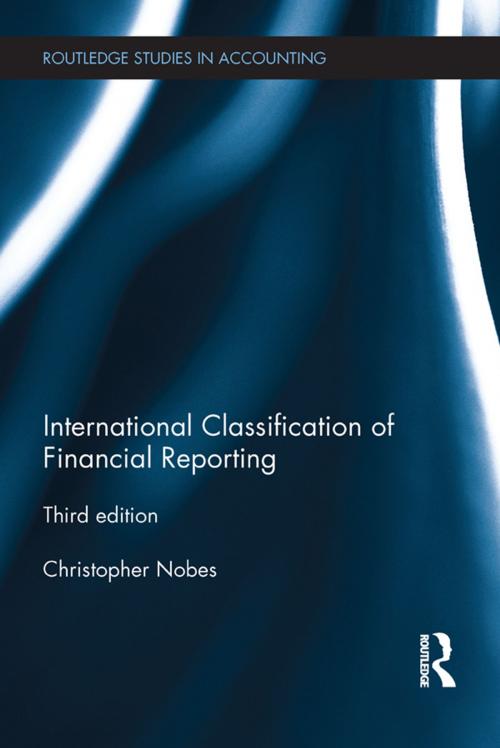International Classification of Financial Reporting
Third Edition
Business & Finance, Accounting, Financial| Author: | Christopher Nobes | ISBN: | 9781317816379 |
| Publisher: | Taylor and Francis | Publication: | August 7, 2014 |
| Imprint: | Routledge | Language: | English |
| Author: | Christopher Nobes |
| ISBN: | 9781317816379 |
| Publisher: | Taylor and Francis |
| Publication: | August 7, 2014 |
| Imprint: | Routledge |
| Language: | English |
Financial reporting practices differ widely between countries and this has far-reaching implications for multinational businesses. Over more than a century, there have been attempts to classify countries into groups by similarities of practices. With the recent spread of International Financial Reporting Standards, it might appear that classification is largely of historical interest, but this is not the case, for several reasons explained in this book.
Christopher Nobes offers a critical analysis of the many previous accounting classifications, having drawn lessons from other fields of science and social science. Revised and updated to reflect the IFRS era, the book discusses how old classifications are reflected in today’s international differences in practice under IFRS. It concludes with a discussion on the most useful classifications, and how classifications can still be relevant in the era of international standards.
This book will be essential for academics, postgraduates and undergraduates in international accounting, accounting theory and to international accounting professionals.
Financial reporting practices differ widely between countries and this has far-reaching implications for multinational businesses. Over more than a century, there have been attempts to classify countries into groups by similarities of practices. With the recent spread of International Financial Reporting Standards, it might appear that classification is largely of historical interest, but this is not the case, for several reasons explained in this book.
Christopher Nobes offers a critical analysis of the many previous accounting classifications, having drawn lessons from other fields of science and social science. Revised and updated to reflect the IFRS era, the book discusses how old classifications are reflected in today’s international differences in practice under IFRS. It concludes with a discussion on the most useful classifications, and how classifications can still be relevant in the era of international standards.
This book will be essential for academics, postgraduates and undergraduates in international accounting, accounting theory and to international accounting professionals.















